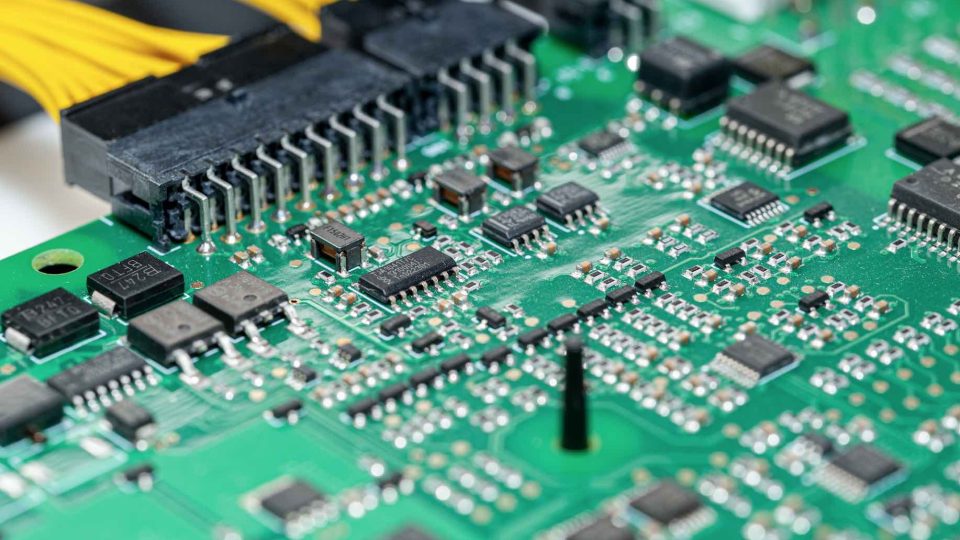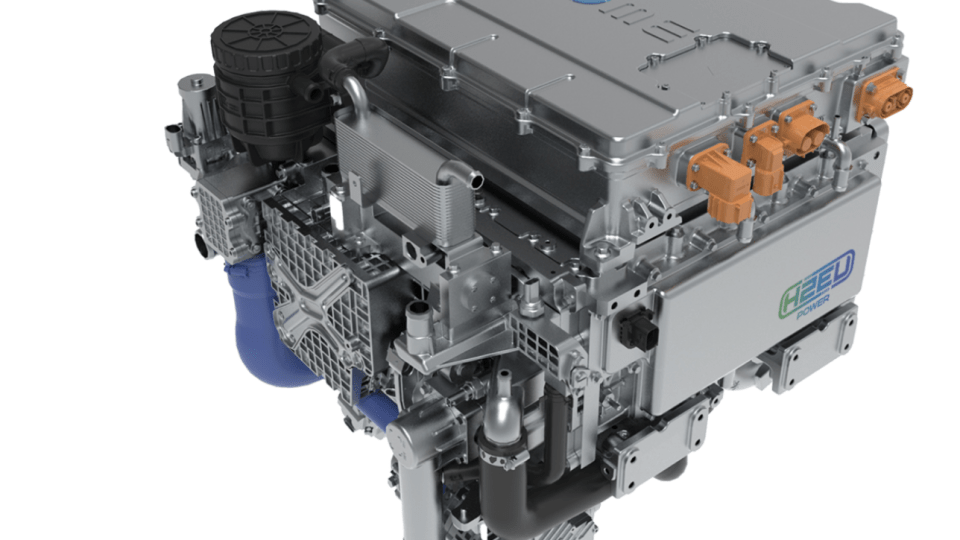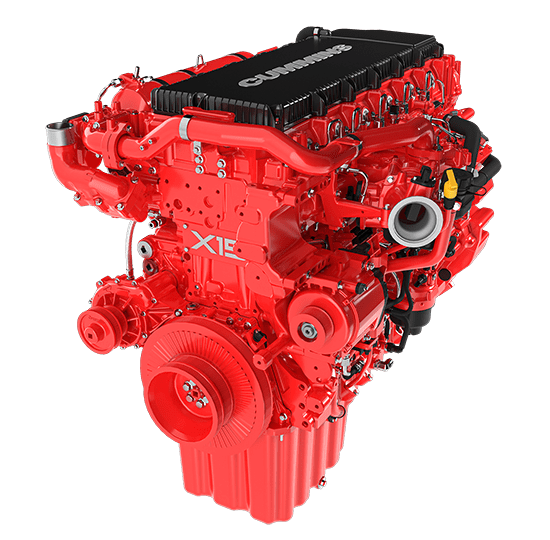Ballard’s FCmove-XD fuel cell engine to debut at IAA 2024
Canadian fuel cell supplier’s latest high-performance module for heavy-duty vehicles, scalable from 120-360kW, will make its European debut at IAA Transportation 2024 in September. The new product “is designed to deliver uncompromised power and performance for operators and efficient integration on new and existing electric vehicle platforms for manufacturers”, told us Nicolas Pocard, vice president, marketing and strategic partnerships, Ballard.
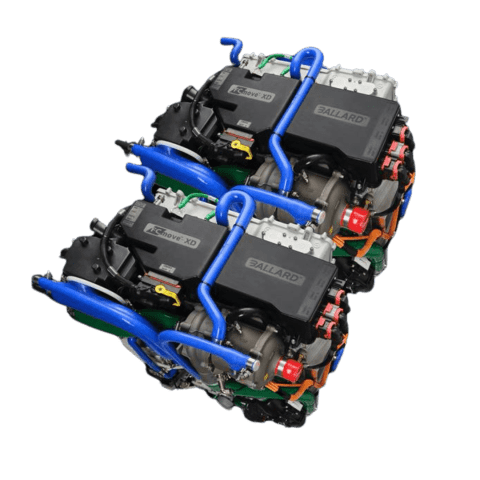
At the upcoming IAA Transportation 2024, Ballard will introduce the new scalable FCmove-XD fuel cell engine with class-leading power density. It’s the latest high-performance module for heavy-duty vehicles, scalable from 120-360kW. Building on nine generations of fuel cell development, the compact design of Ballard Power Systems’ new FCmove-XD fuel cell engine delivers class-leading volumetric power density, with an open architecture design approach that makes the fuel cell the smallest and lightest in its power range.
The compact FCmove-XD module offers an ideal solution for Class 6 to 8 trucks, delivering an easy integration platform for vehicle OEMs and integrators. The module is designed to deliver unmatched performance – with a driving range up to 800km complementing a volumetric power density that is the highest in the global truck industry.
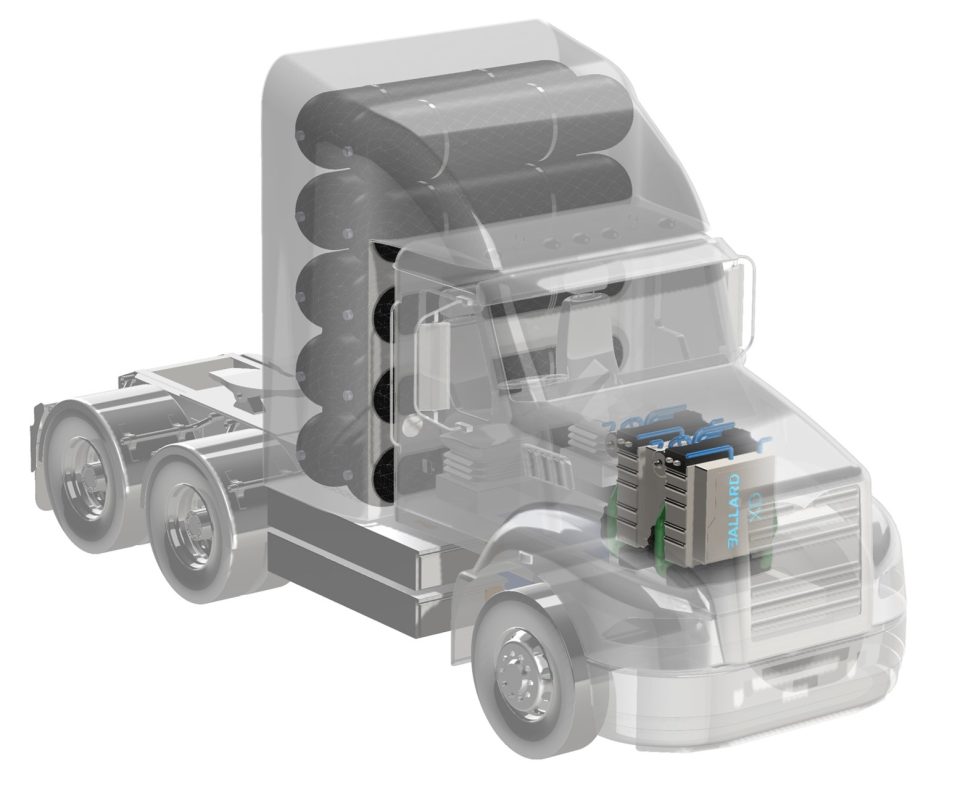
The FCmove range of heavy-duty fuel cell modules are designed, developed, and commercialized by Ballard, and are the longest serving fuel cells in operation. These innovative products have completed more than 200 million real-world kilometers and demonstrate market-leading performance with 25,000+ hours stack lifetime and 98% module reliability. It is this proven operational expertise and knowledge, built over 30 years of on-road experience, that informs and powers Ballard’s latest-generation engine.
“The requirements of the truck market are particularly demanding due to the high vehicle utilization rates and payload requirements,” said Nicolas Pocard, vice president, marketing and strategic partnerships, Ballard. “The FCmove-XD is designed to deliver uncompromised power and performance for operators and efficient integration on new and existing electric vehicle platforms for manufacturers. Backed by Ballard’s open architecture design approach, the new FCmove-XD module is developed for volume production and deployment to deliver competitive CAPEX and total cost of ownership values across heavy-duty truck segments.”
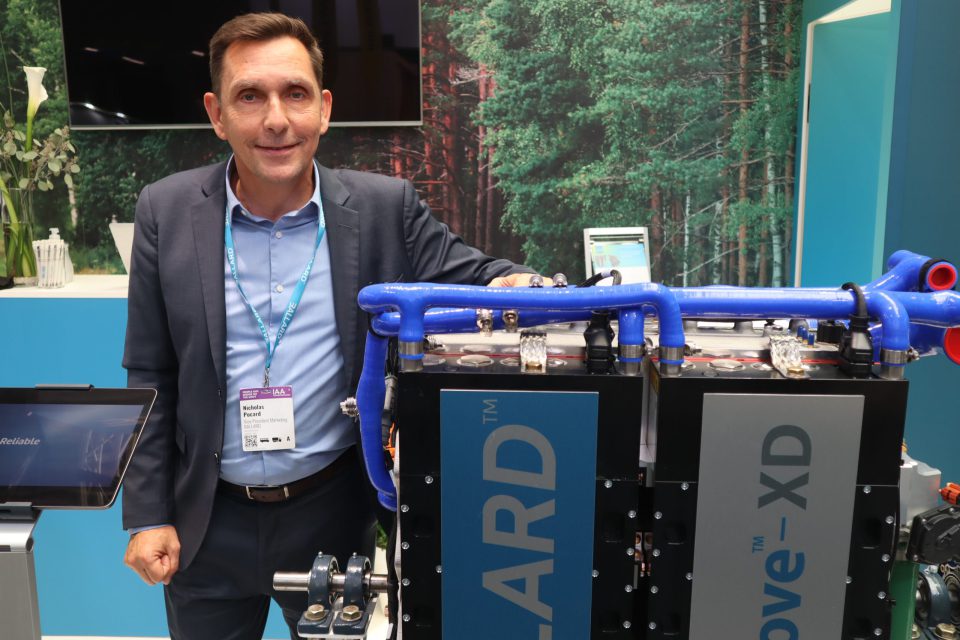
Ballard: innovation through fuel cell technology
The core scalable 120kW fuel cell module integrates DC/DC regulated output, enabling up to three modules delivering 360kW, operating as one engine with a single interface. An integrated power controller incorporates the DC/DC converter, air compressor inverter, and a power distribution unit.
According to Ballard, the open engine architecture delivers the highest published volumetric power density in the industry, and the high-efficiency engine enables low total cost of ownership, efficient heat rejection, and ensures a long driving range of 800km – subject to onboard hydrogen storage capacity.
Additionally, Ballard’s latest FCgen-HPS stack design enables a high operating temperature of up to 95°C and extended durability with low-cost carbon bi-polar plates.
The fuel cell’s open architecture design has resulted in a 33% reduction of parts and a 25% decrease in size compared to earlier modules. The FCmove-XD is designed to fit in the space claim of a diesel engine and up to two units (240kW) can be installed longitudinally in the engine compartment of a heavy-duty truck, retaining easy access for service and maintenance.
“Benefitting from longer range and faster refuelling than battery electric alternatives, fuel cell-powered trucks are also a true zero-emission solution compared to hydrogen internal combustion engines, producing no NOx or tail pipe emissions,” added Pocard. “As production scales up, the reduced complexity and efficient energy conversion delivered by fuel cells hold the most potential to offer the lowest cost solution to meet the requirements of heavy-duty mobility.”
Read also: Next stop hydrogen power with Ballard fuel cell technology for heavy-duty mobility




